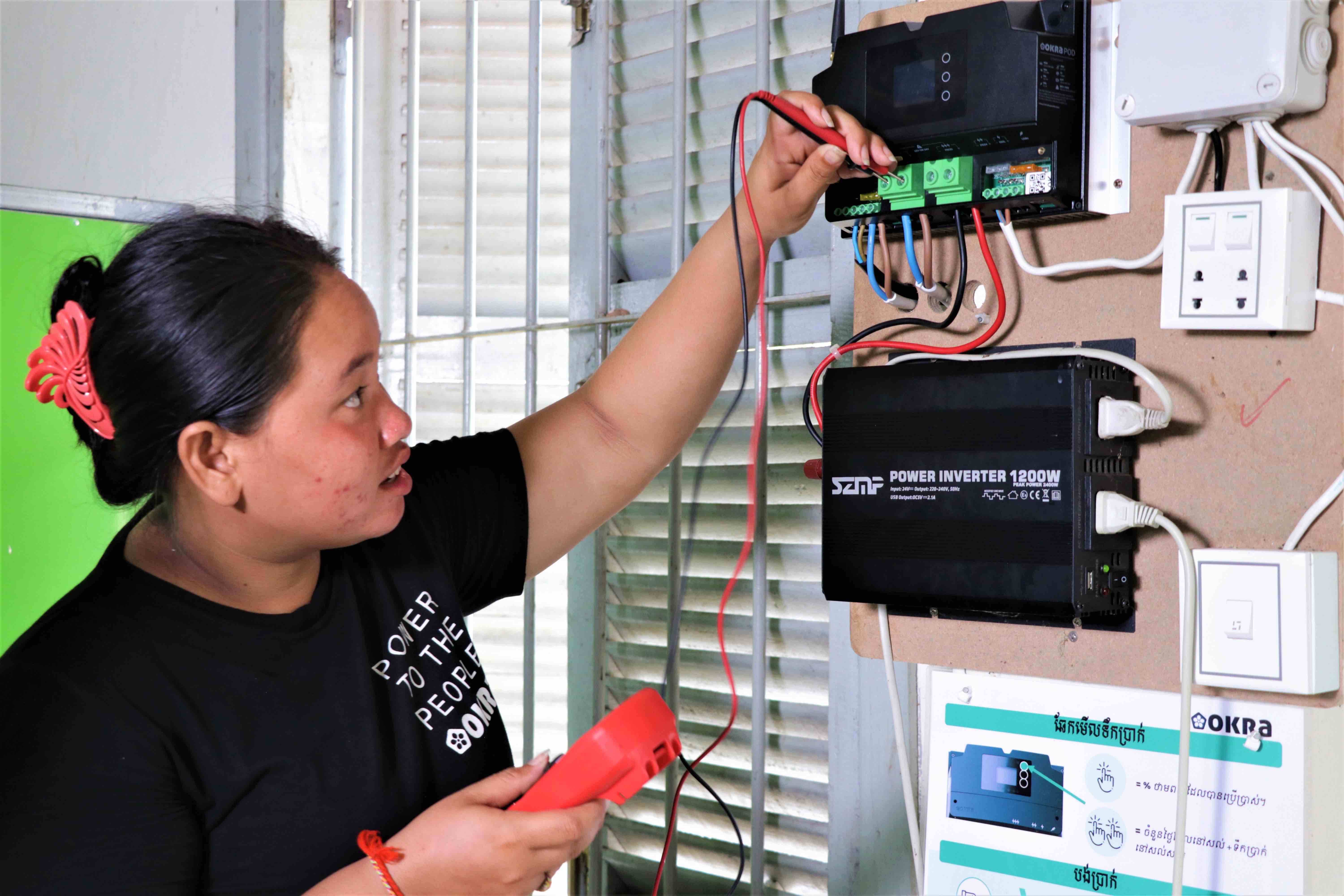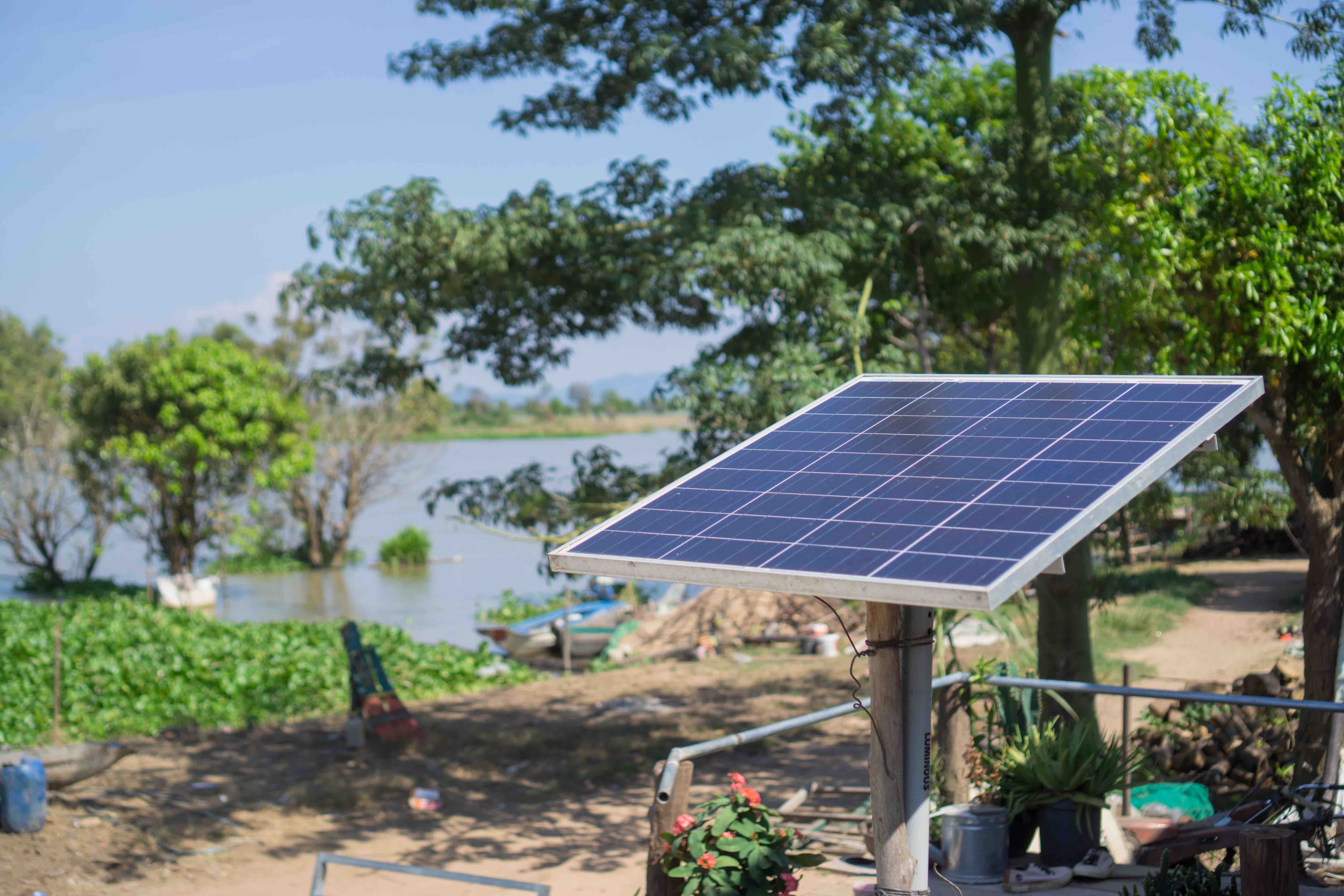Okra Solar walked away with the trophy and a giant check at our 2019 Shenzhen Hardware Battlefield event. It’s a moment happily eternalized in a new press release announcing the renewable energy startup’s $2.1 million new round (it’s a nice photo. I used it on this post, too). Clearly we’re not the only ones who saw promise in the company’s mission.
The Sydney-based company creates hardware and software solutions designed to bring solar-based power to developing markets. At present, it’s currently focused on Nigeria, Philippines, Haiti and Cambodia, with a renewal bent designed to reduce emissions as it brings more populations online. Specifically, the company has developed a Mesh-Grid, which shares power through an interconnected network of homes. A cloud-based system monitors usage and required maintenance, while allowing for remote control.

Image Credits: Okra Solar
“The global population of people without any power currently stands at ~770 million,” CEO Afnan Hannan noted in a conversation with TechCrunch. “These are people that are currently relying on fossil fuels (diesel and kerosene) for basic necessities.”
Explorer Investments and Didendum led the round, which also featured participation from Schneider Electric Energy Access and the Autodesk Foundation. The money will go toward scaling out its productions and R&D, while addressing more of the Nigerian and Hatian markets. Headcount will increase as well. Okra currently employs 28, with plans to expand to 35 by the end of the year.
Following this announcement (being positioned as “pre-Series A”), the company is already gearing up for a Series A, which will help expand things even further to around 50-60 employees.

Image Credits: Okra Solar
“It feels great to lock in this funding so that we can accelerate our growth,” Hannan says in a release. “Our Mesh-Grids leverage IoT and automation to make last-mile electrification affordable and sustainable — even for the most remote villages on the planet. Our innovation has spurred global demand from utility companies.”
The company has also been actively working with local governments to help accelerate the adoption of its technologies.
“In Nigeria, our technology has been approved for subsidies from a $550 million fund put together by the World Bank, African Development Bank and the Rural Electrification Agency,” says Hannan. “This is helping Nigerian developers roll out our tech rapidly with government subsidies, simply because solar powered Okra Mesh-Grids are the only solution that provide sustainable productive power in last-mile communities.”















 English (US) ·
English (US) ·